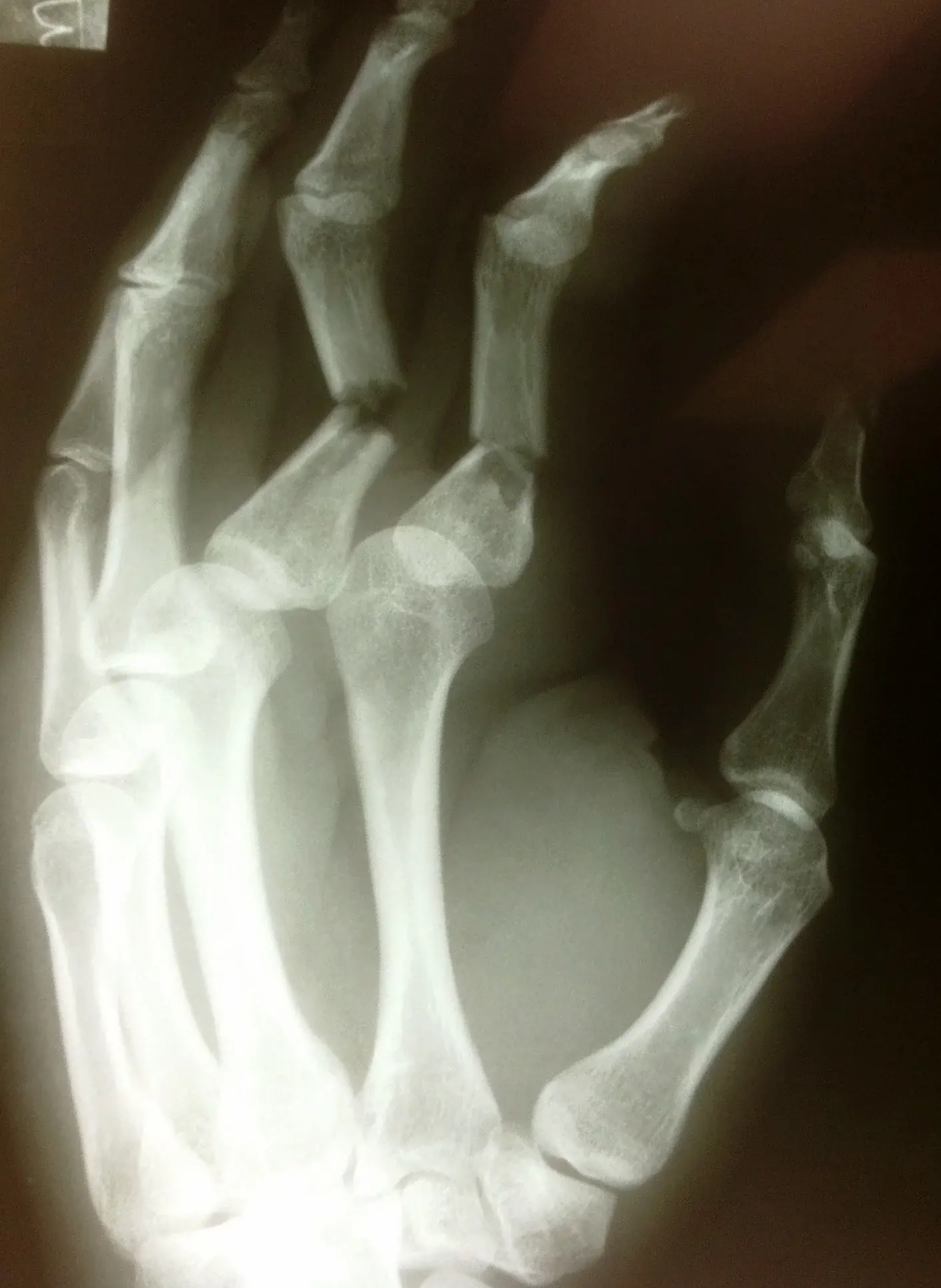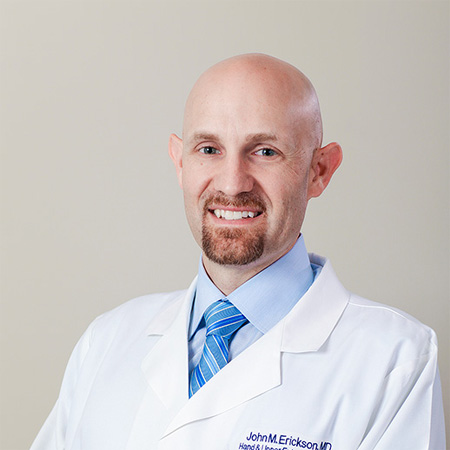What is a TFCC tear?
The lower end of the radius and ulna, along with eight small carpal bones comprise the wrist. Ligaments connect these bones and a few of these ligaments are prone to injury. The triangular fibrocartilage complex (TFCC), which is made up of ligaments and a central trampoline-like fibrocartilage, is located on the side of the wrist below the small finger (ulnar side) and is approximately the size of a dime. The ligaments and fibrocartilage of the TFCC stabilize the ends of the two forearm bones (radius and ulna) during gripping/lifting activities and forearm rotation. It also helps cushion and suspend the carpal bones of the wrist. Many patients diagnosed with a “wrist sprain” have injury to this ligament, which can cause ulnar-sided wrist pain.
How is the TFCC ligament injured?
There are two types of injuries, acute or chronic. An acute TFCC tear may occur after a fall on an outstretched hand or excessive rotation of the forearm. Chronic tears are caused by a degenerative process that wears the ligament down over time. In some patients, the ulna bone, due to excessive length, can pinch the TFCC ligament between the carpal bones, subsequently wearing a hole in the ligament. Inflammatory disorders such as gout and rheumatoid arthritis can also lead to a chronic, degenerative tear.
What are the symptoms of a Triangular Fibrocartilage Complex tear?
Wrist pain (on the ulnar aspect) is the most common symptom of both acute and chronic tears. The pain often increases during grip activities and forearm rotation. Many patients complain of a popping or clicking sensation in the wrist with use. Acute injury findings can range from mild wrist swelling and bruising to instability or dislocation of the distal radioulnar joint.
What treatment is necessary?
Most TFCC tears resolve with activity modification, splinting, and non-steroidal anti-inflammatory medications. If symptoms persist, a corticosteroid injection in the ulnar wrist can be helpful. Operative treatment may be required for persistent symptoms despite appropriate splinting and injection. TFCC tears resulting in instability of the wrist or in association with wrist fractures may require immediate repair.
What is the surgical treatment for TFCC tears?
The type of surgery varies depending on the location of the tear in the ligament and the chronicity of the injury. Surgery can be performed either arthroscopically or using an open technique. Chronic tears many times are related to excess length of the ulnar bone pinching the an ulnar shortening osteotomy.
What kind of complications can occur with surgery?
Complications are rare, especially with arthroscopic treatment techniques. Stiffness, sensory nerve injury, persistent wrist pain and infection have all been reported in the literature with surgical treatment of TFCC tears. If an ulnar shortening osteotomy is required, non-union of the bone and pain in the location of the plate can occur.
How much rehabilitation is required after the surgery?
If the ligament is debrided, strength and motion typically return after surgery. The wrist is typically placed in a splint for two to six weeks after surgery and then the patient is allowed to start strengthening and stretching the wrist. If ligament repair is performed, the ligament needs to be protected and the wrist immobilized for approximately six weeks to allow healing. Incremental stretching and strengthening are then performed for the next six weeks.




